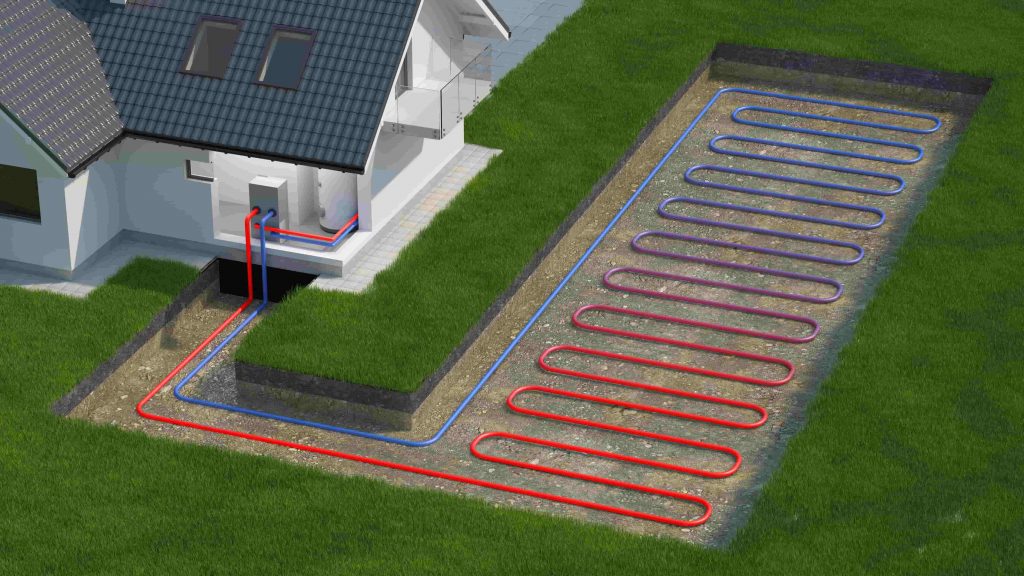Homeowners today are increasingly seeking smarter, more sustainable ways to heat and cool their homes. Geothermal HVAC Systems have emerged as a leading option, providing exceptional energy efficiency, lower operating costs, and superior comfort. In this guide, we’ll explore how geothermal systems compare to traditional HVAC options, helping you make an informed decision for your home.

The rising cost of energy and growing environmental awareness are driving many homeowners to reconsider their heating and cooling systems. Traditional HVAC units consume significant electricity and rely on fossil fuels, leading to higher utility bills and a larger carbon footprint.
Energy efficiency is now a key priority in home design and upgrades. Efficient systems not only reduce energy bills but also enhance indoor comfort. With advancements in geothermal HVAC systems, homeowners can now enjoy consistent temperatures while consuming less power.
At Tony Kelly Inc., sustainability and customer satisfaction go hand in hand. The company offers innovative geothermal installation services that maximize comfort, improve air quality, and deliver long-term savings for Tallahassee homeowners.
A geothermal HVAC system uses the earth’s stable underground temperatures to heat and cool your home. Instead of burning fuel, it transfers heat between your home and the ground using a network of underground pipes called ground loops.
The geothermal installation process begins with an on-site evaluation, followed by drilling or trenching to install the ground loop system. Next, a heat pump connects the loop to your indoor distribution system, ensuring seamless heating and cooling throughout the year.
Tony Kelly Inc. provides full-service geothermal installation services, from system design and permitting to installation and maintenance. Their team ensures every geothermal system operates at peak efficiency for optimal home comfort.
A geothermal system includes three key parts:
Traditional HVAC setups often include furnaces for heating and air conditioners for cooling. Some homes use air-source heat pumps that pull heat from the air.
Conventional systems rely on combustion or electricity to create temperature changes. This process consumes more energy and leads to wear and tear over time.
While effective, traditional systems have shorter lifespans, higher operating costs, and require more frequent maintenance. They also struggle to maintain consistent temperatures compared to geothermal systems.
Geothermal systems outperform traditional units in every major efficiency metric. With higher Seasonal Energy Efficiency Ratios (SEER), Energy Efficiency Ratios (EER), and Coefficient of Performance (COP), geothermal systems deliver more heating and cooling per unit of energy consumed.
Unlike traditional systems affected by outdoor weather, geothermal HVAC systems maintain steady efficiency year-round. This stability means fewer fluctuations in energy bills and more reliable comfort.
Tony Kelly system comparisons show that customers can reduce energy consumption by up to 50%. Many homeowners also report enhanced comfort and quieter operation.
While the initial geothermal installation process may cost more, long-term savings in operating costs and reduced maintenance often offset the investment within a few years.
A geothermal system dramatically cuts carbon emissions by using renewable energy from the ground. This reduction helps combat climate change while providing consistent comfort.
By minimizing reliance on fossil fuels, geothermal systems contribute to a sustainable energy future. Homeowners enjoy eco-friendly heating and cooling without sacrificing performance.
The U.S. Department of Energy (DOE) and Environmental Protection Agency (EPA) both recognize geothermal systems as among the most energy-efficient and environmentally friendly HVAC options available.
Geothermal systems provide steady indoor temperatures without the hot and cold spots common in traditional HVAC systems. They also improve indoor air quality by reducing humidity and allergens.
Traditional systems can be noisy, especially during start-up or shutdown cycles. In contrast, geothermal HVAC systems operate quietly, enhancing overall home comfort.
With advanced zoning and humidity control, geothermal systems allow homeowners to customize temperatures in different rooms, maintaining comfort and efficiency.
Geothermal systems can be installed using horizontal or vertical loop configurations, depending on available space and soil conditions.
Retrofitting geothermal systems in existing homes may require additional planning, but new constructions can easily integrate them into design plans.
Tony Kelly Inc. evaluates every site to design the most effective system. Their experience ensures optimal performance regardless of property type or location.
Your home’s layout, land availability, and budget play key roles in determining if geothermal is right for you. Tony Kelly Inc. offers consultations to evaluate these factors.
Despite higher upfront costs, the system lifespan of geothermal HVAC can exceed 25 years for the indoor unit and 50+ years for the ground loop, delivering outstanding long-term energy savings.
Schedule a consultation with Tony Kelly Inc. to learn how a custom geothermal installation service can provide you with maximum comfort and savings.
When comparing geothermal vs. traditional HVAC, geothermal systems stand out for their energy efficiency, sustainability, and long-term cost savings.
As technology advances and energy costs rise, geothermal HVAC systems offer an eco-friendly, efficient alternative to conventional methods.
Contact Tony Kelly Inc. today to schedule a professional consultation. Their experienced team will guide you through the geothermal installation process, helping you take the first step toward sustainable comfort.
A geothermal system can last over 25 years for indoor components and up to 50 years for underground loops, making it one of the longest-lasting HVAC options available.
While installation costs can be higher upfront, the geothermal installation process pays off through lower energy bills, fewer repairs, and tax incentives.
Homeowners can save between 30% and 60% on heating and cooling bills compared to traditional HVAC systems.
Yes. Tony Kelly Inc. provides full maintenance and repair services to ensure your geothermal system operates efficiently for years to come.
In most cases, yes. Tony Kelly Inc. customizes each geothermal installation service to your property’s specific size, soil, and energy needs.